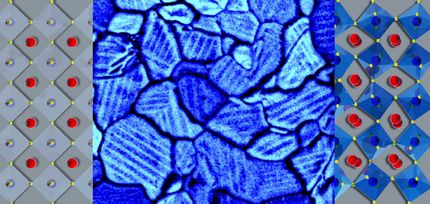Feynman Prizes in nanotechnology awarded to Bartosz A. Grzybowski and Franz J. Giessibl
Foresight Institute announced the laureates for the 2016 Foresight Institute Feynman Prizes.
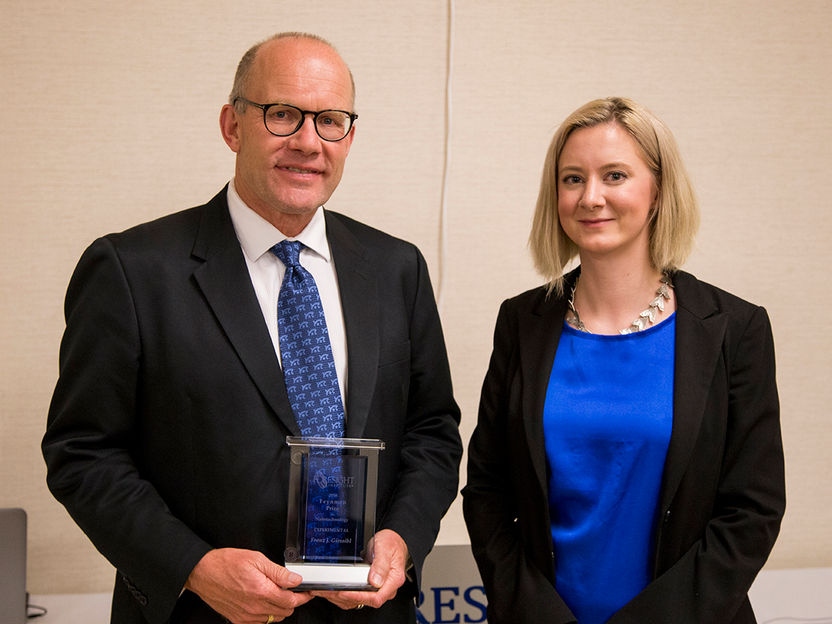
Prof. Giessibl with Julia Bossmann, Foresight President & CEO
Foresight Institute
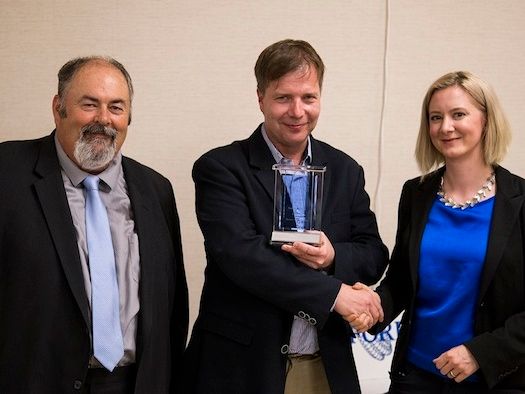
Prof. Grzybowski (center) receiving the 2016 Foresight Institute Feynman Prize for Theory from Foresight Treasurer & COO Steve Burgess (left) and Foresight President & CEO Julia Bossmann
Foresight Institute
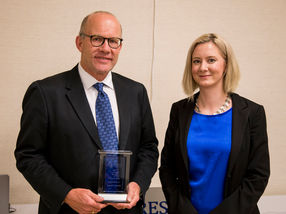
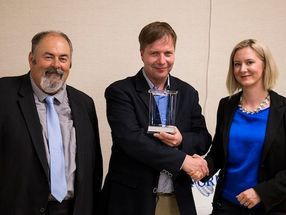
Established in 1993, The Feynman prize was named in honor of pioneer physicist Richard Feynman. The prize is given in two categories of nanotechnology, one for experiment and the other for theory. For the past 23 years, it has highlighted researchers whose recent work has most advanced the achievement of Feynman’s goal for nanotechnology: the construction of atomically-precise products through the use of productive nanosystems.
“The Foresight Institute Feynman Prize in nanotechnology is an award that recognizes progress toward the most visionary objectives in n anotechnology,” said Julia Bossmann, President of Foresight Institute. “Our laureates realize that big innovation is possible on the nanoscale. The prize acknowledges these pioneering scientists and inspires others to follow their lead.”
The 2016 Foresight Institute Feynman Prize for Theory was awarded to Prof. Bartosz A. Grzybowski and the prize for Experiment was awarded to Prof. Franz J. Giessibl.
Bartosz A. Grzybowski is a Distinguished Professor of Nanoscience and Bioengineering in the Department of Chemistry at Ulsan National Institute of Science and Technology, Korea. He is a Group Leader at Korea’s Center for Soft and Living Matter within the Institute for Basic Science, as well as a professor at the Polish Academy of Sciences in Warsaw. Prof. Grzybowski has looked beyond individual nano-objects and their static assemblies to focus on systems that perform desired functions. Applying this systems approach to organic synthesis, he developed a model that, after training on a diverse set of reactions, was able to accurately estimate the outcomes of organic reactions. Such data-driven analyses of chemical syntheses combined with network theory and Artificial Intelligence algorithms led to optimized pathways for completely de novo and fully automated design of syntheses of complex targets, culminating in the Chematica expert system to combine vast amounts of chemical knowledge and plan synthesis pathways toward both known and previously unexplored targets.
Franz J. Giessibl is the Chair of the Institute of Experimental and Applied Physics in the Department of Physics, University of Regensburg, Germany. Prof. Giessibl pioneered major advancements in scanning probe microscopy for imaging and manipulating individual atoms, including the first achievement of atomic resolution by frequency modulation atomic force microscopy, inventing the qPlus sensor-based atomic force microscopy technique, and achieving subatomic resolution and the visualization of individual chemical bonds. Further advances resulted from tips with defined chemical composition and structure, improved understanding of tip-sample interactions, lateral force microscopy, and the combination of force microscopy with scanning tunneling spectroscopy and density functional theory.
Topics
Organizations
Other news from the department science

Get the chemical industry in your inbox
By submitting this form you agree that LUMITOS AG will send you the newsletter(s) selected above by email. Your data will not be passed on to third parties. Your data will be stored and processed in accordance with our data protection regulations. LUMITOS may contact you by email for the purpose of advertising or market and opinion surveys. You can revoke your consent at any time without giving reasons to LUMITOS AG, Ernst-Augustin-Str. 2, 12489 Berlin, Germany or by e-mail at revoke@lumitos.com with effect for the future. In addition, each email contains a link to unsubscribe from the corresponding newsletter.
Most read news
More news from our other portals
See the theme worlds for related content
Topic World Spectroscopy
Investigation with spectroscopy gives us unique insights into the composition and structure of materials. From UV-Vis spectroscopy to infrared and Raman spectroscopy to fluorescence and atomic absorption spectroscopy, spectroscopy offers us a wide range of analytical techniques to precisely characterize substances. Immerse yourself in the fascinating world of spectroscopy!

Topic World Spectroscopy
Investigation with spectroscopy gives us unique insights into the composition and structure of materials. From UV-Vis spectroscopy to infrared and Raman spectroscopy to fluorescence and atomic absorption spectroscopy, spectroscopy offers us a wide range of analytical techniques to precisely characterize substances. Immerse yourself in the fascinating world of spectroscopy!
Topic world Synthesis
Chemical synthesis is at the heart of modern chemistry and enables the targeted production of molecules with specific properties. By combining starting materials in defined reaction conditions, chemists can create a wide range of compounds, from simple molecules to complex active ingredients.

Topic world Synthesis
Chemical synthesis is at the heart of modern chemistry and enables the targeted production of molecules with specific properties. By combining starting materials in defined reaction conditions, chemists can create a wide range of compounds, from simple molecules to complex active ingredients.
